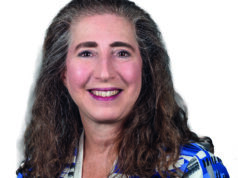
During November—Nov. 11, specifically—the United States salutes and honors all those who have served this country in its armed forces. This November, the Society for Vascular Surgery (SVS) highlights the Korean War, where vascular surgeons typically served in Mobile Army Surgery Hospitals. The idea of moving care closer to the battlefield was born during World War II, with the first MASH unit organized in 1948.
This past September marks the 50th anniversary of the launch of the television show M*A*S*H, which ran for 11 seasons on CBS. Two episodes during those 11 years included advances in vascular surgery. Marking the occasion, in August the SVS’ Audible Bleeding podcast aired “MASH-Part 1,” on how the young surgeons working near the battlefield in MASH units during the Korean War pioneered vascular wartime repair.
The “MASH” episode is part of Audible Bleeding’s “Vascular Origin Stories,” which explore “the fun and engaging stories that shaped vascular surgery.” Visit vascular.org/AudibleBleedingMASH1 for more.
In addition, “Korea, MASH and the accidental pioneers of vascular surgery” appeared in the Journal of Vascular Surgery (JVS) in 2017, outlining the use of the army hospitals, the youthfulness of the surgeons, arterial repair and the writing of the book that led, eventually, to the television show.
“Despite their limited training and preparation, the horrific working conditions, the ongoing threats of court martial for attempting to save rather than sacrifice limbs, and the endless cataracts of broken and maimed young soldiers requiring desperate treatment, the MASH surgeons in Korea cared for their patients with extraordinary dedication and perseverance. As a result, a new surgical specialty was born—“and soldiers walked … who might not have,” concludes Steven G. Friedman, MD, author of the JVS article.
“From World War II, to Korea, to Vietnam, to Iraq—twice—and Afghanistan, our members have stepped up when needed, and done their best to treat those wounded in battle,” said SVS President Michael C. Dalsing, MD. “We salute not only their service but their quick thinking and innovations that led to many advances in the specialty. War truly was the catalyst for many advances in vascular surgery we take somewhat for granted today.”












